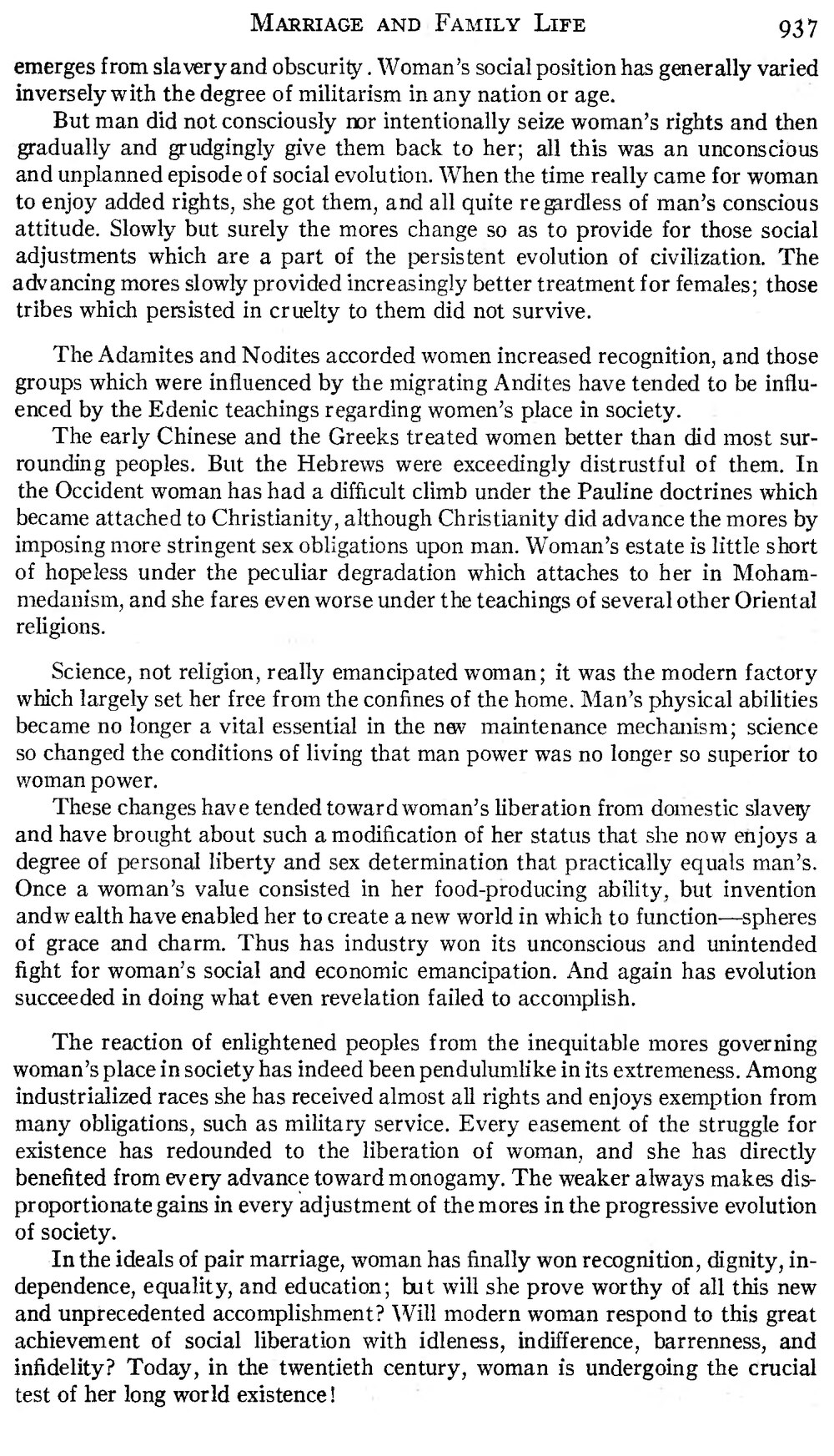emerges from slavery and obscurity. Woman's social position has generally varied inversely with the degree of militarism in any nation or age.
But man did not consciously nor intentionally seize woman's rights and then gradually and grudgingly give them back to her; all this was an unconscious and unplanned episode of social evolution. When the time really came for woman to enjoy added rights, she got them, and all quite regardless of man's conscious attitude. Slowly but surely the mores change so as to provide for those social adjustments which are a part of the persistent evolution of civilization. The advancing mores slowly provided increasingly better treatment for females; those tribes which persisted in cruelty to them did not survive.
The Adamites and Nodites accorded women increased recognition, and those groups which were influenced by the migrating Andires have tended to be influenced by the Edenic teachings regarding women's place in society.
The early Chinese and the Greeks treated women better than did most surrounding peoples. But the Hebrews were exceedingly distrustful of them. In the Occident woman has had a difficult climb under the Pauline doctrines which became attached to Christianity, although Christianity did advance the mores by imposing more stringent sex obligations upon man. Woman's estate is little short of hopeless under the peculiar degradation which attaches to her in Mohammedanism, and she fares even worse under the teachings of several other Oriental religions.
Science, not religion, really emancipated woman; it was the modern factory which largely set her free from the confines of the home. Man's physical abilities became no longer a vital essential in the new maintenance mechanism; science so changed the conditions of living that man power was no longer so superior to woman power.
These changes have tended toward woman's liberation from domestic slavery and have brought about such a modification of her status that she now enjoys a degree of personal liberty and sex determination that practically equals man's. Once a woman's value consisted in her food-producing ability, but invention and wealth have enabled her to create a new world in which to function—spheres of grace and charm. Thus has industry won its unconscious and unintended fight for woman's social and economic emancipation. And again has evolution succeeded in doing what even revelation failed to accomplish.
The reaction of enlightened peoples from the inequitable mores governing woman's place in society has indeed been pendulumlike in its extremeness. Among industrialized races she has received almost all rights and enjoys exemption from many obligations, such as military service. Every easement of the struggle for existence has redounded to the liberation of woman, and she has directly benefited from every advance toward monogamy. The weaker always makes disproportionate gains in every adjustment of the mores in the progressive evolution of society.
In the ideals of pair marriage, woman has finally won recognition, dignity, independence, equality, and education; but will she prove worthy of all this new and unprecedented accomplishment? Will modern woman respond to this great achievement of social liberation with idleness, indifference, barrenness, and infidelity? Today, in the twentieth century, woman is undergoing the crucial test of her long world existence!
